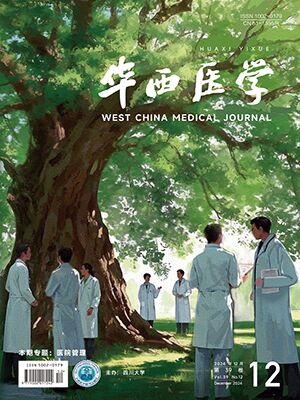| 1. |
郑铭陟, 李李. 七氟醚吸入麻醉在体外循环转流期间对机体应激和血流动力学的影响[J]. 医学临床研究, 2013, 30(2):371-373.
|
| 2. |
姚倩娟, 何小京, 张良彬. 舒芬太尼和芬太尼复合麻醉下体外循环先天性心脏病手术患儿应激反应的比较[J]. 中华麻醉学杂志, 2009, 29(10):881-884.
|
| 3. |
王新利. 体外循环诱发急性心肌胰岛素抵抗的研究新进展[J]. 中国体外循环杂志, 2011, 9(2):118-120.
|
| 4. |
林鹏焘, 魏蔚, 李坚, 等. 瑞芬太尼对体外循环患者体循环阻力的影响[J]. 中华麻醉学杂志, 2007, 27(8):677-680.
|
| 5. |
Kamibayashi T, Maze M. Clinical uses of a2-Adrenergic agonists[J]. Anesthesiology, 2000, 93(5):1345-1349.
|
| 6. |
胡宪文, 张野, 孔令锁, 等. 不同剂量右美托咪啶抑制气管插管诱发患者心血管反应效应的比较[J]. 中华麻醉学杂志, 2010, 30(11):1304-1306.
|
| 7. |
陈章玲, 曹德权, 徐军美, 等. 右美托咪啶临床应用新进展[J]. 广东医学, 2012, 33(2):290-292.
|
| 8. |
龙村. 体外循环学[M]. 北京:人民军医出版社, 2004:104-105.
|
| 9. |
蒋洪宇, 申颖, 刘兵. 小儿紫绀型心脏病矫治术的麻醉及体外循环管理[J]. 广东医学, 2008, 29(8):1348-1349.
|
| 10. |
刘正美, 杭燕南. 尼卡地平和硝酸甘油在体外循环中血压控制的比较[J]. 上海医学, 2001, 24(1):26-28.
|
| 11. |
赵洪伟, 王强, 魏伟, 等. 体外循环中尼卡地平和硝酸甘油控制血压效果及对血流动力学参数的影响[J]. 齐鲁医学杂志, 2006, 21(5):415-416, 418.
|
| 12. |
姚莉, 周小妹, 赵晶晶. 右美托咪啶在重症监护病房应用的研究[J]. 中国危重病急救医学, 2010, 22(10):632-634.
|
| 13. |
吴新民, 许幸, 王俊科, 等. 静脉注射右美托咪啶辅助全身麻醉的有效性和安全性[J]. 中华麻醉学杂志, 2007, 27(9):773-776.
|
| 14. |
李民, 张利萍, 吴新民. 右美托咪啶在临床麻醉中应用的研究进展[J]. 中国临床药理学杂志, 2007, 23(6):466-470.
|
| 15. |
Shehabi Y, Ruettimann U, Adamson H, et al.dexmedetomidine infusion for more than 24 hours in critically ill patients:gedelive and cardiovaseular effects[J]. Intensive Care Med, 2004, 30(12):2188-2196.
|
| 16. |
Klamt JG, Vicente WV, Garcia LV, et al. Hemodynamic effects of the combination of dexmedetomiding-fentanyl versus midazolam-fentanyl in children undergoing cardiac surgery with cardiopulmonary bypass[J]. Rev Bras Anestesiol, 2010, 60(4):336-350.
|
| 17. |
尹毅青, 罗爱伦, 郭向阳, 等. 冠状动脉搭桥术患者围手术期皮质醇昼夜分泌节律与神经心理状态的研究[J]. 中华外科杂志, 2005, 43(7):463-467.
|
| 18. |
Aho M, Scheinin M, Lehtinen AM, et al. Intramuscularly administered dexmedetomidine attenuates hemodynamic and stress hormone responses to gynecologic laparoscopy[J]. Anesth Analg, 1992, 75(6):932-939.
|




